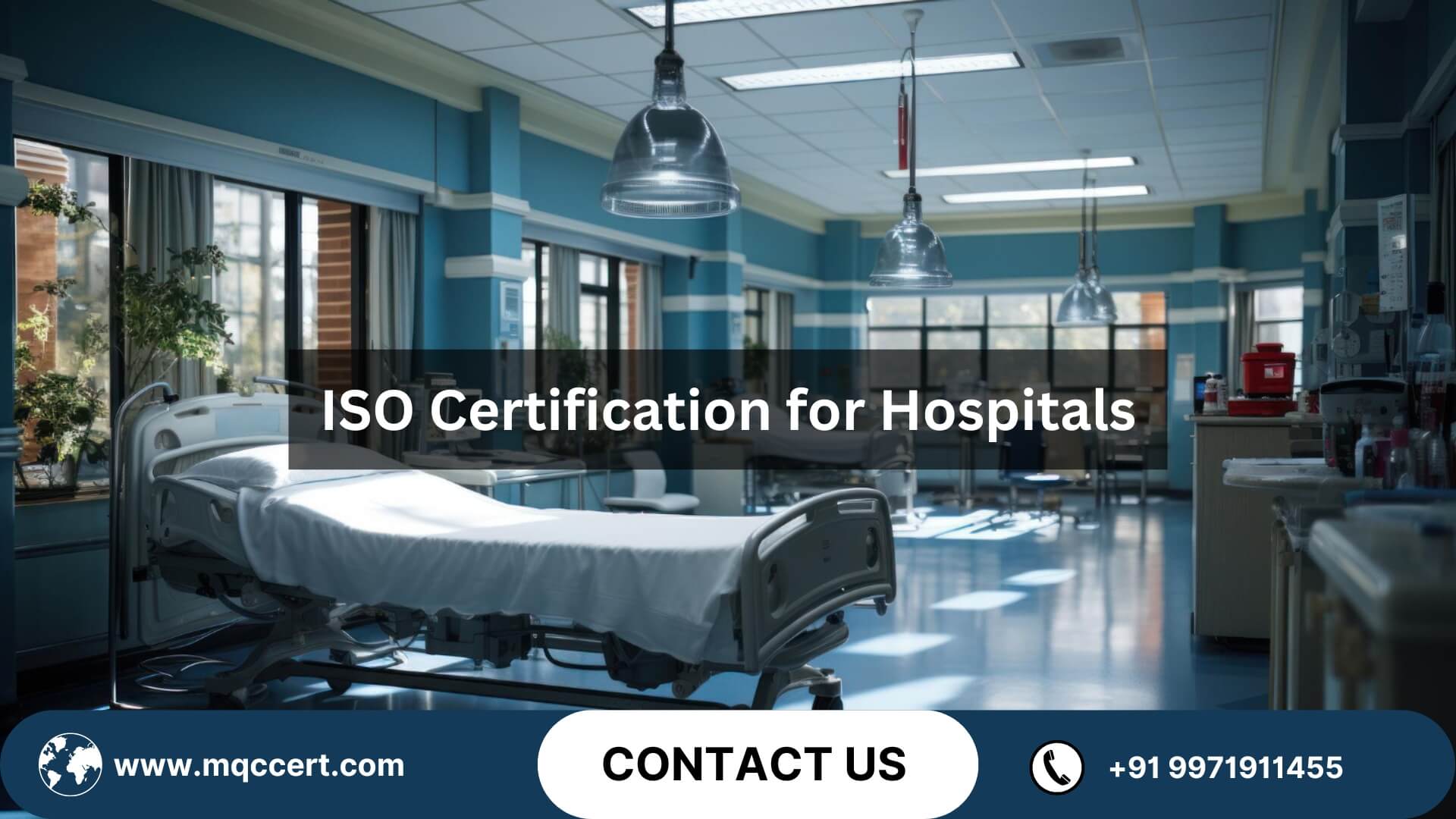
ISO Certification for Hospitals and Healthcare
The healthcare industry includes all the institutions that ensure the health and safety of people. It covers the pharmaceutical, hospital, pharmacy, and medical device industries, among others. The effectiveness of processes and the quality of goods and services are important in this industry. For this purpose, the International Organization for Standardization (ISO) publishes a certain set of ISO certification for the healthcare industry that can help organizations related to the healthcare sector to demonstrate their credibility in the market.
When a hospital is ISO certified then the patient’s parents have more trust in the hospital and its doctors, and they understand that the hospital, its doctors and staff are world class.
ISO 9001 Certification for Hospital
ISO 9001 is a globally recognised standard for quality management. It helps organisations of all sizes and sectors improve their performance, meet customer expectations and demonstrate their commitment to quality. Its requirements define how a quality management system (QMS) is to be established, implemented, maintained and continuously improved.
Implementing ISO 9001 means your hospital has established effective processes and staff are well trained on how to care for hospital patients, how to maintain the hospital,
Why is ISO 9001 Important?
ISO 9001 helps organizations ensure their customers consistently receive high quality products and services, which in turn brings many benefits, including satisfied customers, management, and employees.
Benefits of ISO 9001 Certification for Hospitals
ISO 9001:2015 is a globally recognized standard for quality management systems (QMS). When implemented in hospitals, it provides several benefits that enhance the overall quality of healthcare services. Here are some of the key benefits for hospitals:
1. Improved patient satisfaction
Standardized processes: ISO 9001:2015 helps standardize hospital processes, ensuring consistent quality of care.
Patient-centric approach: Focuses on meeting patient needs and expectations, improving patient satisfaction and trust.
2. Increased efficiency and effectiveness
Streamlined operations: Identifies inefficiencies and wastage, leading to streamlined processes and reduced costs.
Improved resource management: Ensures optimal use of resources, including staff, equipment, and facilities.
3. Improved Risk Management
Risk-based thinking: Emphasizes proactive identification and mitigation of risks, thereby increasing patient safety.
Improved Safety Protocols: Standardized procedures for handling emergencies and critical situations.
4. Continuous Improvement
Quality Improvement Culture: Promotes a culture of continuous improvement through regular monitoring and evaluation.
Data-Driven Decisions: Uses data and metrics to make decisions and improve processes.
5. Regulatory Compliance
Alignment with Regulations: Helps hospitals meet regulatory and statutory requirements, avoiding legal issues and penalties.
Documentation and Traceability: Ensures comprehensive documentation, making it easier to demonstrate compliance.
6. Employee Engagement and Satisfaction
Clear Roles and Responsibilities: Clearly defined roles and responsibilities improve staff accountability and job satisfaction.
Training and Development: Encourages continuous training and professional development of staff, thereby increasing competency and morale.
7. Improved Communication
Internal Communication: Facilitates better communication within the organization, ensuring everyone is informed and aligned.
Stakeholder Communication: Enhances communication with patients, families, suppliers, and other stakeholders.
8. Benchmarking and Best Practices
Benchmarking: Allows hospitals to benchmark their performance against global standards and best practices.
Adoption of Best Practices: Encourages the adoption of best practices in healthcare management and delivery.
9. Market Competitiveness
Reputation for Quality: Becoming ISO 9001:2015 certified can enhance a hospital’s reputation for quality, attracting more patients and partners.
Competitive Advantage: Differentiates the hospital from competitors, potentially increasing market share.
How do I get an ISO certificate?
If you are looking for an ISO 14001 Certification for hospital, you can contact us by email at info@mqccert.com or by visiting our official website at www.mqccert.com. Please include your contact information so that a consultant will get in touch with you as soon as possible to better understand your needs and offer the best solution on the market.
